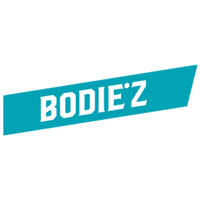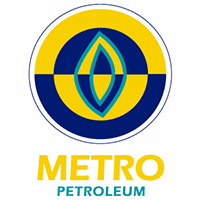1990 - 1999

With the world growing faster than ever and the game following suit, the Roosters initially struggled in the early part of the decade, but key appointments saw them become a powerhouse of the competition once again.
1990 - Disaster Strikes
| Played: | 22 |
| Won: | 6 |
| Lost: | 15 |
| Drawn: | 1 |
| Final Position: | Fourteenth |
Although Test Captain Paul Vautin and former Wallaby centre Matt Burke joined the Club, the Roosters were headed for disaster in 1990.
British imports Joe Lydon and Martin Offiah were unable to agree to terms for another season, while star signing the year prior Brett Papworth suffered another long-term stint on the sidelines.
The biggest concern on the injury front was front rower Danny Shepherd's eleven-day coma following heat stroke as he collapsed at the Sydney Football Stadium, ending his first-grade career.

With dismal crowds at the Sydney Football Stadium ranging between 3500-7000, the Club abandoned their new home after just four matches, reverting back to Henson Park for the rest of the season.
In Round 5 the Roosters suffered their biggest losing margin in Club history in a demoralising 66-4 loss at the hands of the Canberra Raiders - and although they held the 1988 Premiers in Canterbury-Bankstown to a 12-all draw five days later, confidence had plummeted.
Tension between the playing group and coach, with Russell Fairfax's tenure with the clipboard over in July - Captain Hugh McGahan took over as Captain-Coach, with his involvement in the New Zealand Test side meaning former back rower Barry 'Bunny' Reilly taking over as interim coach.

In a positive, Jack Gibson returned in a role that saw him oversee football operations, while 1974-75 Premiership five-eighth John Peard took over as coaching coordinator.
While Gibson's influence was in work, the year ended with the side in fourteenth place in a sixteen-team competition, while five players had returned positive tests for marijuana in a further showing of how far standards had dropped.
Debutants: Brad Burke, Matt Burke, Paul Vautin, Jim Bell, Martin Quinn, Adrian Bolton, David Shepherd, Paul Busch, Tim Russell, Shane Seinor, Brett Wheelhouse, Jason Tassell, Corey Stewart, Justin Dooley, Grant Hyde
1991 - Gibson Gets His Man
| Played: | 22 |
| Won: | 9 |
| Lost: | 12 |
| Drawn: | 1 |
| Final Position: | Eleventh |
In search of a new Head Coach, Jack Gibson appointed former Test halfback Mark Murray as the man to guide Easts in 1991 - who had successes with Redcliffe in the Queensland competition.
But the drama had already begun as the newly introduced draft saw the Club in a tussle with Wests for youngster Terry Hill - and while the Roosters nabbed his signature well within their rights, Hill had protested by sitting out the opening rounds of the season, before being released to the Magpies for the following year after court action.

With an outlook on investing in youth, the broom was swept at the end of 1990 with 20 players released, and while injuries threatened to derail the year early, a newfound spirit saw a four-match winning streak see the Tricolours on the verge of the top five.
A reversal of the demolition in Canberra the year prior saw the Roosters come away with a 22-14 win, but after remaining on pace for seventeen rounds, injuries and lack of depth saw them suffer heavy defeats in the last five rounds.
While the famous careers of Paul Vautin and Hugh McGahan came to an end, one of the greatest to pull on the Red, White and Blue began his in Presidents Cup centre Luke Ricketson, who debuted in the final round against Penrith.
Debutants: Steve Benkic, Mark Protheroe, Colin Ward, Gavin Orr, Bruce Sinclair, Terry Hill, Jeff Orford, Ty Hardy, Steve Robinson, Matt Donohoe, Luke Ricketson
1992 - Near Miss
| Played: | 22 |
| Won: | 12 |
| Lost: | 10 |
| Drawn: | 0 |
| Final Position: | Sixth |
Critics questioned the acquisition of Gary Freeman, who had struggled in reserve grade in 1991 at Balmain, but the Kiwi halfback completed one of the great career turnarounds by claiming the Dally M Player of the Year Medal - the first Rooster to do so.
Brett Papworth's injury curse had led him to an early retirement in disappointing circumstances, but on the back of Freeman's newfound form and the strength and ability of prop Craig Salvatori, Easts found themselves undefeated at the top of the table after five rounds.

With a competition lead alongside Brisbane at the halfway point, their fortunes seemed to have been changed for the better, until an infamous day at Penrith in Round 12 - with Salvatori sent off for a headbutt and suspended for five weeks.
His side failed to register a win in his absence and languished in twelfth position by the time he returned, and while a late rally saw them claim four of their last five matches - including a 56-16 demolition of Souths in Round 22 - they failed to force a fifth-place playoff by a single point.
In a tragic end to the season, young centre James Mathews was killed in a car crash on Christmas Eve in a head-on-collision on the Hume Highway while travelling to his parents' house.
Debutants: Gary Freeman, Nigel Gaffey, Steve Hanson, James Mathews, Wayne Sing, David Seidenkamp, Steve Funnell, Ross Harrington, Scott Murray, Rod Doyle, James Shepherd, James Smith, Tony Cosatto, Michael Appleby
1993 - Politis Steps In
| Played: | 22 |
| Won: | 11 |
| Lost: | 10 |
| Drawn: | 1 |
| Final Position: | Eighth |
The strong form that began 1992 surged into 1993, with the Club claiming the World Sevens trophy in the pre-season, their first piece of silverware since the 1981 Minor Premiership.
The Roosters sat just a point from the competition lead before flying out to Perth in may for a match billed to whet the appetite as expansion continued.
Unfortunately, the season took a nosedive as within a five-minute period, Craig Salvatori tore his cruciate ligament, winger Michael Appleby fractured his cheekbone and centre Scott Murray also sustained a serious knee injury.
Just weeks later, the returning Martin Offiah suffered a shoulder injury just 54 minutes into his return match.

In a positive, New Zealand recruit Jason Lowrie was strong in his first season, as was Nigel Gaffey who had arrived the year prior, while fullback Rod Silva was classy in his return from a broken jaw, featuring in every match.
A highlight came in the Round 16 match at Carlaw Park in Auckland, where the Tricolours rallied from an 18-4 deficit after halftime to post a famous 22-18 win over the Newcastle Knights.
Unfortunately, though, their efforts without Salvatori proved to be futile as they missed the finals once again, and in a disappointing end, halfback Gary Freeman was unable to negotiate a new deal with the Club.
Long-time sponsor Nick Politis and former Kangaroos halfback Kevin Junee were elected onto the board of directors, while the President's Cup side claimed the Premiership with a 17-4 Grand Final victory over Cronulla.
Debutants: Jason Lowrie, Craig O'Dwyer, Brett Docherty, Shane Walker, Jason Keough, Shane Whereat, Mark Barnes, Grant Doorey, Clinton O'Brien, Grant Wheelhouse, Robert Mears, John Moses, Harvey Howard, Tim Blasczak
1994 - Enter Phillip Ronald Gould
| Played: | 22 |
| Won: | 6 |
| Lost: | 15 |
| Drawn: | 1 |
| Final Position: | Fourteenth |
A fierce electrical storm coupled with 80km winds and torrential rain that plagued the side's pre-season Tooheys Challenge clash against Parramatta was an ominous warning of what was to come for season 1994.
Unable to recover from losing their first four matches, the Roosters were out of contention for the finals before the season had reached halfway, with key recruit Brian Smith announcing his retirement after just six appearances while other newcomers in Tony Iro, Scott Sattler and Craig Weston failed to find form at Easts.
Glandular fever struck a dozen players in the early parts of the season, while Salvatori failed to recapture form upon return from the sidelines as he was struck down with a ghastly infection and niggling injuries.
Following a six-match losing streak between Rounds 9 and 15, Mark Murray was released from his contract, with the board deciding to recruit two-time Premiership-winning coach Phil Gould for the upcoming season.

Arthur Beetson - now the Club's recruitment officer, took over as caretaker while Gould, released early from his own contract at Penrith, observed before taking over the final round clash against the Gold Coast, a 30-28 victory.
Quick to make sweeping changes at the Club during his tenure, Gould and the Club got to work with a high volume of new, high-profile recruits for the upcoming season.
Debutants: Jason Hudson, Tony Iro, Brian Smith, Craig Weston, Scott Sattler, Kandy Tamer, Richard Kairouz, Adrian Lam, Sean Garlick, Frank Napoli, Richie Allan, Adam Starr, Hamish Smith
1995 - The Sydney City Roosters
| Played: | 22 |
| Won: | 12 |
| Lost: | 10 |
| Drawn: | 0 |
| Final Position: | Ninth |
Now known as the Australian Rugby League, the competition had expanded to its highest number of clubs, covering the entirety of the country as well as venturing to New Zealand with the Auckland Warriors, North Queensland Cowboys, South Queensland Crushers and Western Reds admitted in.
With a heavy emphasis on player development, the Club got to work in order to compete in the now 20-team competition; setting up a gymnasium at North Bondi Surf Club and securing access to train at E.S. Marks Field in Moore Park.
Incoming talent was high in volume, with the likes of internationals Phil Clarke, Graham Mackay and Terry Hermansson, as well as rugby converts Darren Junee (son of Club legend Kevin) and Peter Jorgensen, while Peter Clarke, Darren Maroon, David O'Donnell, Andrew Walker, Barry Ward and Nathan Wood also joined.
Club powerbrokers - in a bid to uphold a 'modern' image, made the momentous decision on the eve of the competition's kick-off to change the Club's name to the Sydney City Roosters. While controversial, it was deemed necessary as the new millennium approached.
With the Super League conflict fast approaching, and with Phil Gould one of the great ARL supporters, the Roosters' Head Coach found himself in a frenzy as he attempted to retain as many players away from the rebel faction.

On the field, the Tricolours' enterprising style of play saw them in seventh place on the ladder at the halfway mark, but were in danger of falling away after four successive losses to heavyweights Bulldogs, Canberra, Brisbane and Norths.
Up against competition leaders Manly, who had begun with fifteen consecutive victories - becoming the first team since 1959 to do so - the Roosters charged to a 19-4 halftime lead, and held on to claim a famous 21-16 following an Andrew Walker field goal.
The win reignited their season, but needing to rely on results in the final round to book a place in the semi-finals saw the Tricolours finishing in ninth position.
Debutants: Peter Clarke, Terry Hermansson, Graham Mackay, David O'Donnell, Paul Smith, Andrew Walker, Nathan Wood, Darren Junee, Adam MacDougall, Danny Lima, Brad Pike, Barry Ward, John Deery, Henry Suluvale, Michael Salafia, Darren Maroon, Phil Clarke, Peter Jorgensen, Nathan Blacklock, Darren Rameka
1996 - Bondi Freddy
| Played: | 24 |
| Won: | 15 |
| Lost: | 8 |
| Drawn: | 1 |
| Final Position: | Fourth |
Despite their failure to reach the finals in 1995, the Roosters were a team on the rise, with the likes of halfback Adrian Lam and back rower Luke Ricketson growing into dependable first-graders.
Signed to the ARL, Penrith player and Australian Captain Brad Fittler was convinced by Phil Gould, his former coach, to join the Club following the Panthers' defection to the ill-fated Super League - proving to be one of the most influential in Club history.

With Fittler's name, the Roosters added Penrith teammate Matt Sing, goal-kicking centre Ivan Cleary, Illawarra pair Ben Duckworth and John Simon as well as former front rower Paul Dunn, returning for a swansong after leaving ten years prior.
A 38-10 trouncing of Balmain in the opening round at the Sydney Football Stadium set the tone for the year, and despite the immediate retirement of centre Phil Clarke following a serious neck injury, the Tricolours charged through to string together a ten-game winning streak, their best-ever start to a season.
State of Origin took its toll on the side, but the victories continued - including a last-minute 12-10 against the Broncos on Monday night in front of a bumper crowd of 35,000 at the SFS - although injuries proved to be too much for the side.
Sign up for a free NRL Account to access this video and other exclusive content.
Sign UpAlready have an NRL Account?
Not sure? Learn more about an NRL Account .
Front rowers Tony Hermannson and Jason Lowrie suffered broken arms, while Fittler, Adrian Lam and Darren Junee saw the side struggle but continue their run to book their place in the finals, breaking an eight-year drought at long last.
Limping out but not without a fight, the Roosters fought hard against eventual Premiers Manly in the first week (14-16) before being overrun by the other Grand Finalists, St George (16-36).
At season's end, the Club decided to take an exhibition match to Japan against Manly, with the young Arthur Beetson-led Tricolours proving too good in a high-scoring encounter, coming away with a 34-30 win for the Revolution Cup.
Debutants: Ivan Cleary, Ben Duckworth, Brad Fittler, John Simon, Matt Sing, Tim Maddison, Scott Logan, Dean Johnsen, Michael Ostini, Shane Rigon, Shane Millard, Julian Troy
1997 - One Point From Destiny
| Played: | 25 |
| Won: | 15 |
| Lost: | 9 |
| Drawn: | 1 |
| Final Position: | Fourth |
The Red, White and Blue continued to go from strength to strength in the recruitment department, adding St George Grand Final backrowers Scott Gourley and David Barnhill, alongside former Kangaroo Dale Shearer and promising young hooker Simon Bonetti and winger Jack Elsegood to their list.
With the rebel Super League competition getting the all-clear, the Roosters competed in the 12-team Australian Rugby League for the Optus Cup alongside fellow foundation clubs Balmain, North Sydney, South Sydney and Western Suburbs.
Heavyweight contenders, the Gould's Roosters produced plenty of high-quality football and bounced back from a mid-season slump - which saw them claim a solitary draw against Newcastle in a six-week period - to book their place in the top four.

Most notably came their three encounters with the Sea Eagles - with the first (a 34-24 defeat at Brookvale Oval) praised by Manly Coach and former Rooster Bob Fulton: "If you want a match that had every ingredient of Rugby League, you got it in that game."
The return match at the SFS saw front rowers Terry Hermannson and Mark Carrolls sent off for headbutting, with the silvertails once again taking the spoils, 21-12.
But despite their near misses, the Tricolours continued to rally into the finals, once again in fourth position after a 29-20 victory over Norths in the final week of the season.
Meeting the Bears in the first week of the finals, the Roosters claimed their first finals win since 1987 in a captivating contest, which saw them trail 13-nil at halftime, before clawing back to 15-all at fulltime and going on to victory 33-21 in a 100-minute classic.

One week later after accounting for surprise packets in the Gold Coast Chargers 32-10 at Parramatta Stadium, it was round three of their ongoing battle with Manly for a spot in the Grand Final.
Heartbreak, though, came in the preliminary final as the Tricolours' fight back for a Grand Final Berth was halted by a field goal after coming back from a 16-6 deficit and outscoring Manly three tries to two.
Despite the loss, Gould was convinced of greater things from his side, and following Fittler's Provan-Summons Medal as the ARL Player of the Year as well as the scintillating form of five-eighth Andrew Walker, Roosters fans had plenty to look forward to for the remainder of the 1990s.
Debutants: Simon Bonetti, Scott Gourley, Robert Miles, Dale Shearer, Jacin Sinclair, Peter Ellis, Jack Elsegood, David Barnhill, Damien Mostyn, Greg Bourke, Adam Hayden, Brandon Costin (né Pearson), Bryan Fletcher, Dallas Hood, Chad Halliday
1998 - War and Peace
| Played: | 27 |
| Won: | 18 |
| Lost: | 9 |
| Drawn: | 0 |
| Final Position: | Fourth |
The ARL and Super League had come to a compromise, with the National Rugby League forming with 20 teams etched in for 1998 - which would then go down to 14 in 2000.
As such, rationalisation struck fear into the hearts of the clubs, with suspicion and mistrust plaguing the competition in the front offices, but despite this, the Roosters crowed as high achievers, taking top spot after an early seven-match winning streak.

The well-balanced side featuring Barnhill, Gourley, Luke Ricketson, Bryan Fletcher, Simon Bonetti, Brad Fittler, Adrian Lam, Andrew Walker and Matt Sing was never threatened with missing the finals, despite injuries and representative football taking their toll.
In the ten-team finals series, the fifth-placed Roosters travelled to Victoria to take on newcomers in the Melbourne Storm, easily accounting for third place with a 26-16 win, before one of the great modern-day victories.
ARL Premiers Newcastle, who had the right of a week's break for finishing in the top two, raced to a 15-nil lead by halftime - before Phil Gould's words of wisdom inspired a famous 26-15 win.

The Head Coach spoke at fulltime following the victory: "The points didn't scare me. What scared me was whether or not we believed we could do it. We spent the 10 minutes they gave us [at halfitme] talking about that."
Unfortunately, it would be the Super League champion Brisbane Broncos ending the Roosters' season, with a lopsided 46-18 scoreline - which ironically saw fullback Ivan Cleary break a 20-year record for most points in a season.
Debutants: Richie Barnett, Julian Bailey, James Pickering, Ryan Cross, Brendan Hurst, Justin Brooker, Peter Cusack
1999 - Looking to the New Millennium
| Played: | 26 |
| Won: | 16 |
| Lost: | 10 |
| Drawn: | 0 |
| Final Position: | Fifth |
The men from Bondi began season 1999 in scintillating fashion, claiming ten of the first twelve matches which included a 46-0 demolition of Manly and big wins over 1998 Grand Finalists Brisbane (26-16) and Canterbury-Bankstown (42-6), carrying them to the top of the ladder at the halfway mark.
That early success earned a host of players representative selection throughout the season, including:
- Brad Fittler, Bryan Fletcher, David Barnhill and Luke Ricketson selected for NSW
- Adrian Lam and Matt Sing selected for Queensland
- Fittler, Sing and Fletcher playing for Australia in the Anzac Day Test against Richie Barnett (New Zealand)
While the selection was appreciated by the Club, it was the same old story as the heavy playing toll saw the likes of Fittler, Lam, Sing and Barnhill missing during the run home, with the side unable to claim successive victories.

Scraping home in fourth place as the loss of their halves stung, the Roosters clung on but were defeated by the Ricky Stuart-led Bulldogs (8-12), before Brad Fittler's stellar effort which included two tries and an assist was not enough to claim victory against new joint-venture and eventual Grand Finalists St George Illawarra.
In another bitter pill to swallow, the Roosters took out four consecutive finals appearances but were unable to show for it, with Phil Gould surprisingly stepping down from his role.
"I was finished after the semi-final loss to St George Illawarra," Gould explained.
"A couple of weeks later I had a game of golf with Freddy (Fittler) and I told him I was thinking of giving it away. I drove straight into town and saw Nick (Politis) that afternoon and told him I was finished.
Classic Match: Roosters vs Knights - Round 26, 1999
"I was just tired. I really had to push myself hard through that year. It was the whole battle of the Super League war, the Club surviving, developing the Club into a good side.
"It was now at a point where the Club I was coaching was being heavily targeted in the media because of what I'd done and I felt very guilty about that. I just basically got tired.
"I didn't want the Club or the players suffering because I just didn't have the energy anymore."
While there seemed to be uncertainty heading into the new millennium, few could predict the success the Roosters would attain in the coming seasons.
Debutants: Paul Langmack, Quentin Pongia, Craig Kimmorley, Shannon Hegarty, Darren Burns, Paul Khoury, David Solomona, Nelson Lomi, Graham Appo

Sydney Roosters respect and honour the Traditional Custodians of the land and pay our respects to their Elders past, present and future. We acknowledge the stories, traditions and living cultures of Aboriginal and Torres Strait Islander peoples on the lands we meet, gather and play on.







